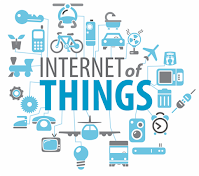On March 2, ViaSat announced it had entered into a partnership with Ligado Networks and Skylo Technologies to offer direct-to-device (D2D) satellite services via Ligado's SkyTerra satellite network. This year, the partnership plans to use their respective satellite networks to enable smartphone messaging and Internet-of-things (IoT) services, including in areas where terrestrial wireless connectivity is weak or entirely lacking.
To date, satellite networks have provided connectivity and delivered communications to equipment designed specifically for satellite-delivered services. D2D services are an important breakthrough because they connect satellite networks to terrestrial cellular devices used by consumers and business enterprises.Additionally, on February 23, Ligado Networks announced its partnership with Omnispace to combine their respective licensed mobile satellite service (MSS) spectrum in the L- and S-Bands for providing D2D capabilities including global voice, text messaging, and data connectivity. Together, Ligado and Omnispace intend to use their multi-orbit satellite networks to provide mobile connectivity to consumer and enterprise terrestrial cellular devices in areas where cellular coverage is lacking.
Market freedom and flexible use spectrum licenses are essential to the success of innovative D2D offerings. And the FCC has an important role to play in encouraging future ventures involving interoperable satellite and terrestrial wireless networks. At its meeting on March 16, the FCC will be voting on its draft Notice of Proposed Rulemaking for a "Single Network Future."
According to the draft Notice, the rulemaking would "facilitate the integration of satellite and terrestrial networks by proposing a new regulatory framework for Supplemental Coverage from Space (SCS). The draft Notice is intended to provide a streamlined agency approval process for satellite operator collaborations with terrestrial wireless service providers involving operation of space stations on flexible-use spectrum that is allocated to terrestrial services.
The Commission appears to recognize the potential for satellite-terrestrial collaborations, such as those exemplified by Ligado's recent agreements with ViaSat and Omnispace, to reach unserved and underserved areas, enabling emergency communications and other beneficial uses for consumers and industries. This is a positive development.





